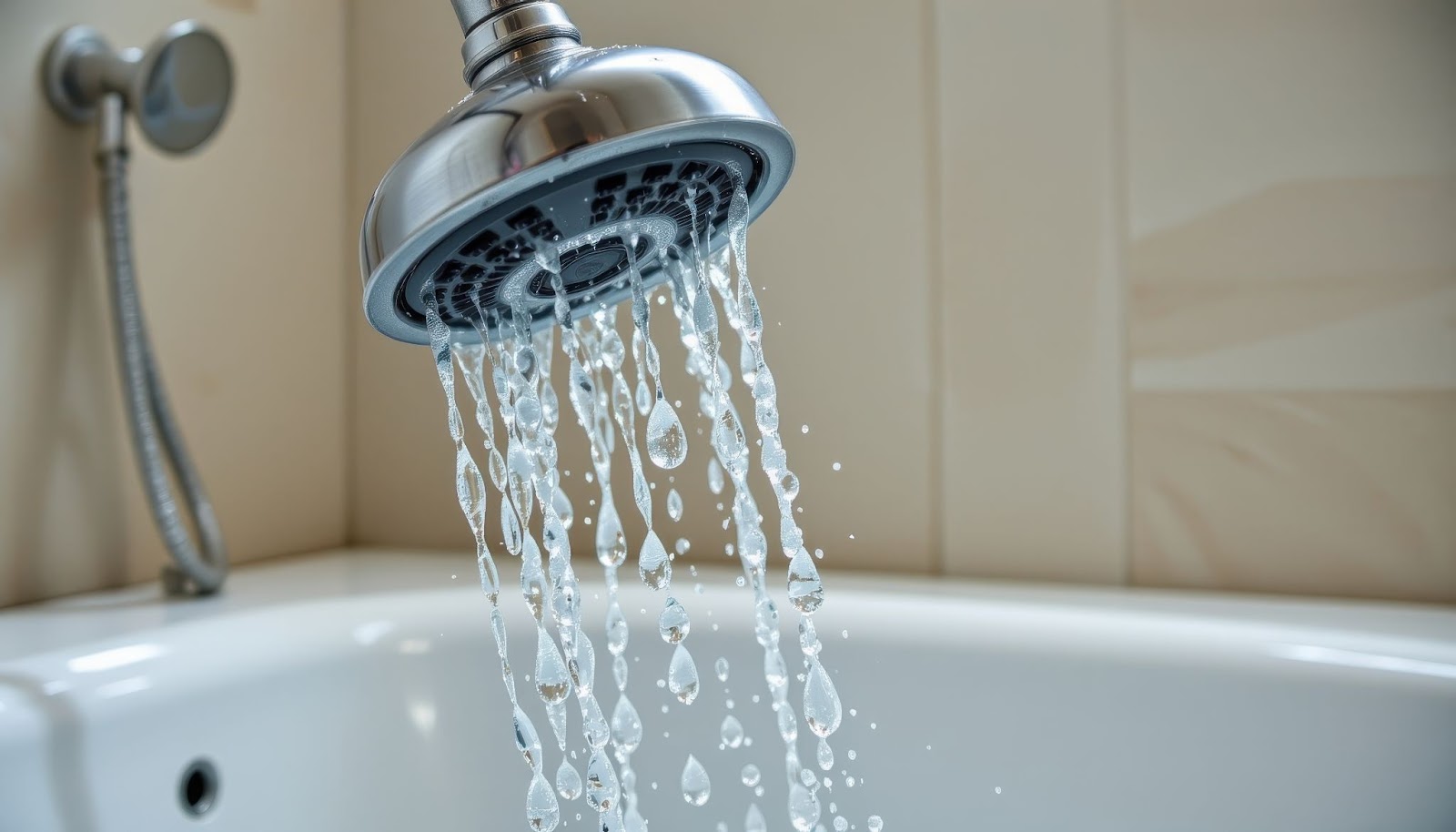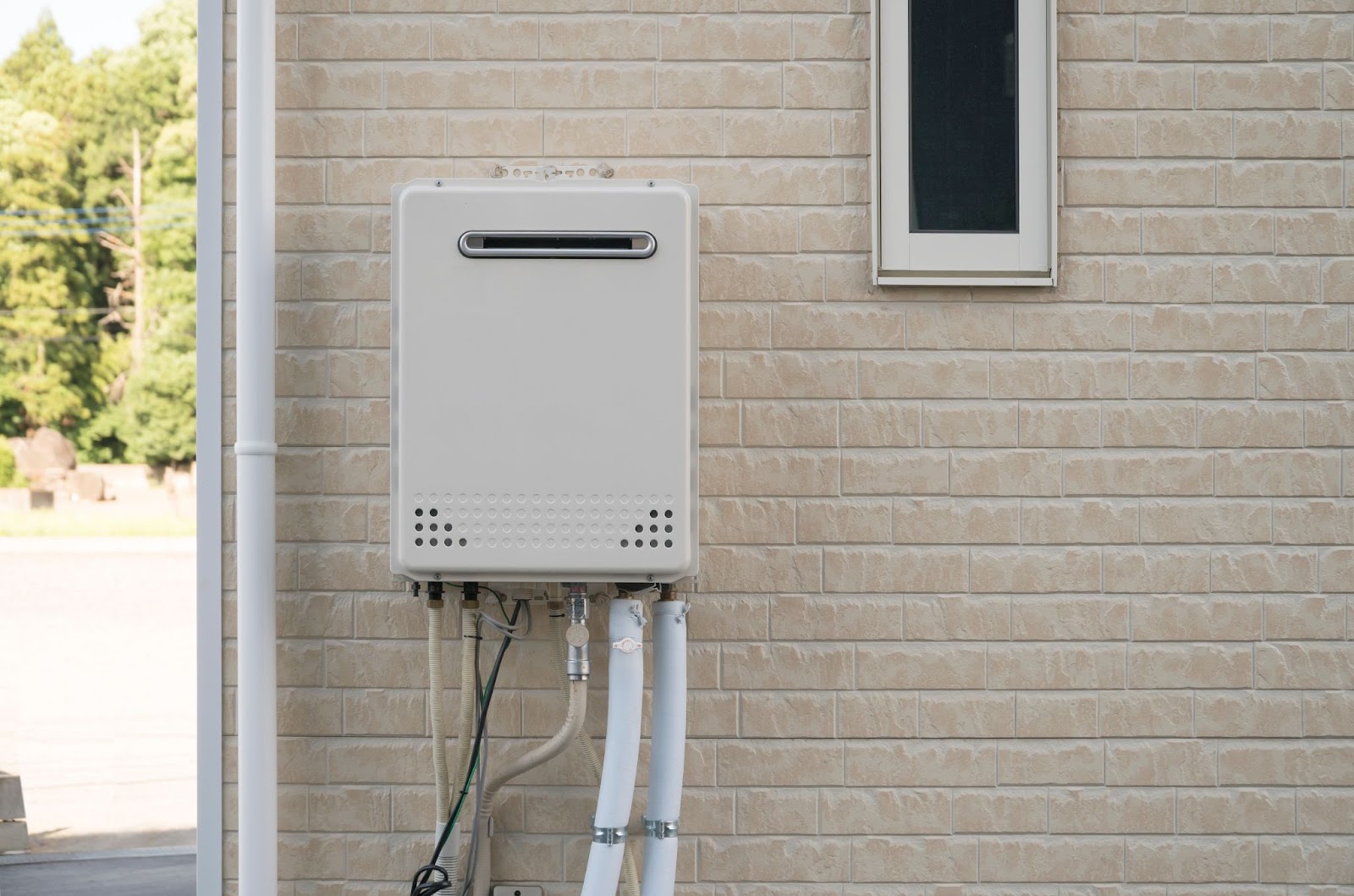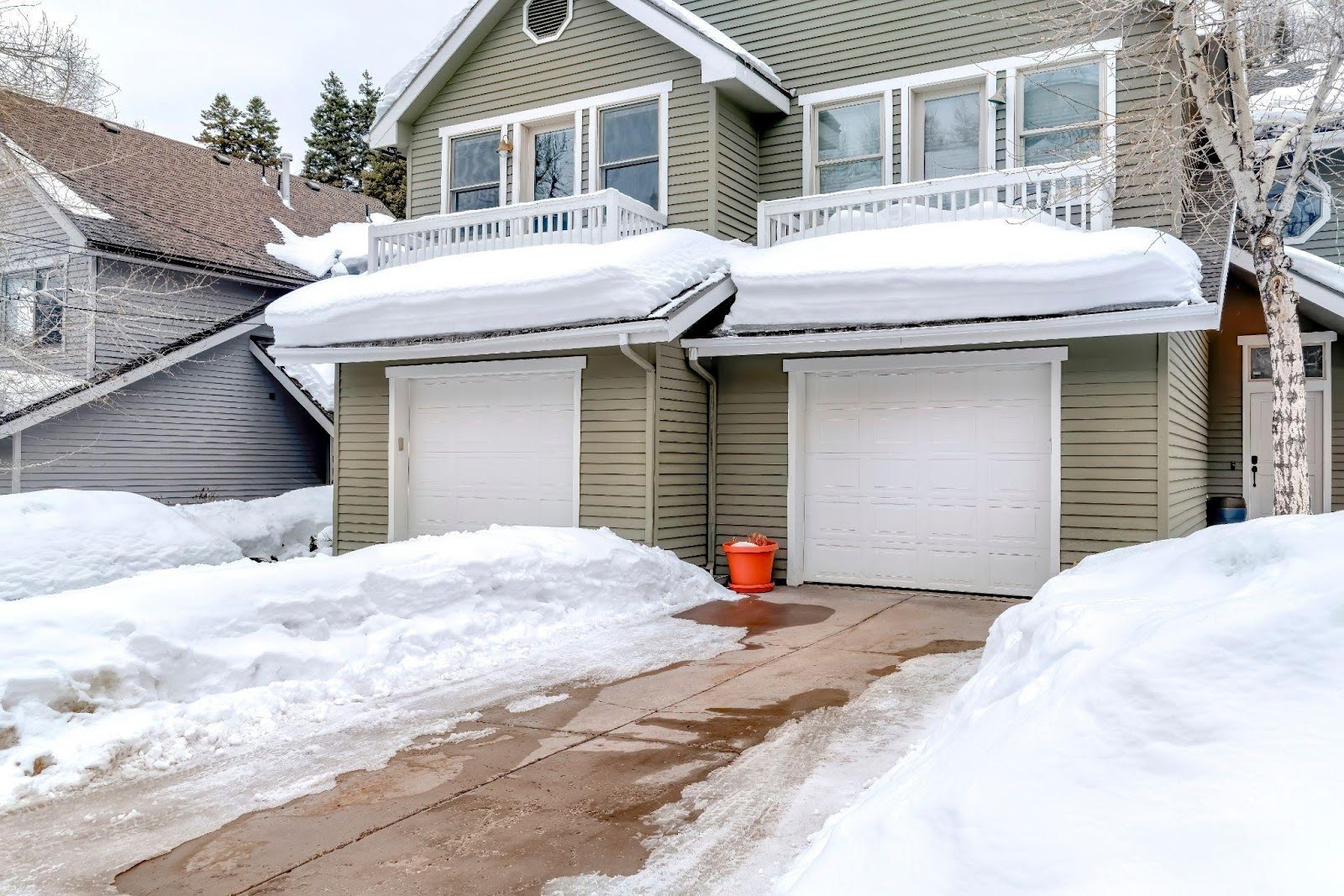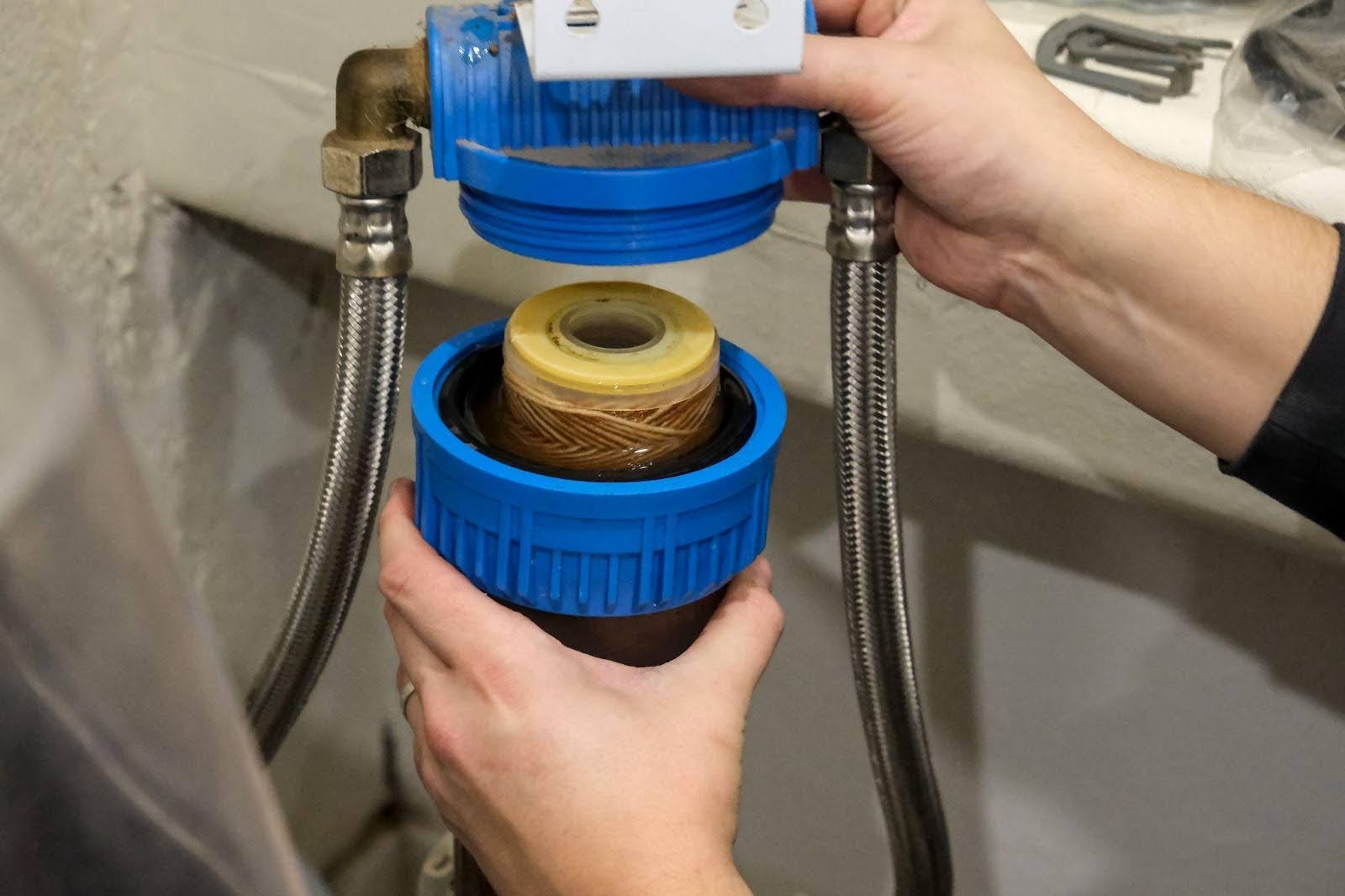A leaky shower head may seem like a small nuisance, but those steady drips add up to wasted water, higher utility bills, and unnecessary wear on your plumbing system. Left unchecked, what starts as a minor inconvenience could quickly become a costly problem requiring more than a quick fix.
The good news is that most leaks come from common issues that you can easily identify and fix.
In this blog, we’ll explore the most frequent causes of shower leaks, provide practical shower head repair tips, and explain when it’s best to call a professional for complete shower repair.
Keep reading to learn more.
Common causes of a leaky shower head
Worn-out washers
The washer is a small rubber or plastic component that forms a watertight seal inside the shower head. Over time, washers can crack, harden, or wear down, allowing water to seep through even when the faucet is off. This is one of the most common — and easiest — issues to fix.
You’ll turn off the water supply, disassemble the shower head, and inspect the washer. If it looks brittle or misshapen, replace it with a new one of the same size. Reassembling the unit with a fresh washer often resolves the leak immediately.
Faulty O-rings
Similar to washers, O-rings are small circular seals that prevent leaks where parts of the shower head connect. Over time, they can deteriorate from heat, water pressure, or mineral buildup, leading to a steady drip.
To fix this, unscrew the shower head and locate the O-ring. Swap it out for a replacement if it’s cracked, flattened, or loose. This simple shower head repair takes minutes and can save gallons of wasted water.
Mineral buildup
Hard water — common in many homes — contains minerals like calcium and magnesium. These minerals accumulate inside the shower head, clogging nozzles and creating uneven water pressure. This pressure imbalance often forces water through weak points, leading to a leaky shower head.
To fix this, remove the shower head and soak it in vinegar for several hours to dissolve mineral deposits. For stubborn buildup, use a soft brush to scrub the nozzles. Regular cleaning prevents leaks caused by mineral clogging.
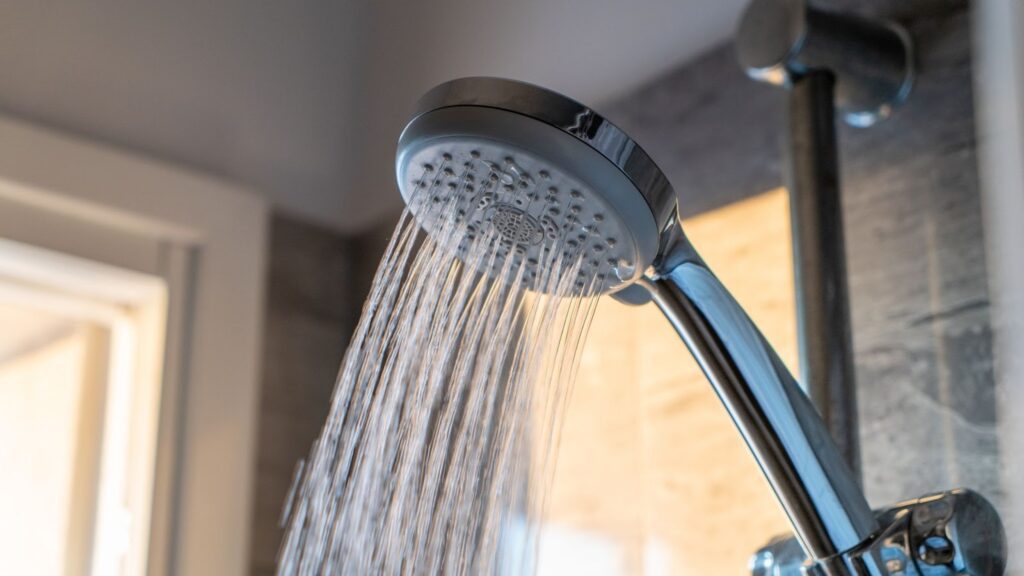
Loose connections
Sometimes, the cause is as simple as a connection that isn’t tight enough. Water can escape around the threads if the shower arm and head aren’t securely fastened.
To fix this, turn off the water, unscrew the shower head, and wrap plumber’s tape (Teflon tape) around the threads of the shower arm. Reattach the head firmly, ensuring a snug, watertight fit.
Cracked shower head or arm
If the shower head’s metal or plastic body has developed cracks, or if the shower arm itself gets damaged, leaks are inevitable. These issues are less about repair and more about replacement.
There are still a couple of steps to take, though. Inspect the fixture carefully. It’s best to replace the shower head entirely if you see visible cracks. For a damaged shower arm, unscrew it from the wall fitting and install a new one with fresh plumber’s tape.
Worn diverter valve (for tub/shower combos)
In a bathtub-shower combo, the diverter valve directs water to the tub spout or the shower head. A worn or faulty diverter might cause water to leak out of the shower head even when the handle is turned “off.”
Replacing a diverter valve is more complex than swapping a washer or O-ring. You’ll need to disassemble the faucet handle and valve assembly, which is often best handled by a professional plumber to ensure a proper shower repair.
High water pressure
Excessively high water pressure will stress your shower plumbing and cause leaks around seals and connections. It can also shorten the life of washers and O-rings.
To fix this, install a pressure-reducing valve on your home’s main water line to regulate pressure. This prevents leaks and protects your entire plumbing system.
DIY vs. professional shower head repair
With basic tools and a little time, you can fix many small causes of a leaky shower head, like worn washers, O-rings, or loose connections.
However, not all leaks are that simple. If you’ve tried these fixes and the problem persists, it may point to deeper plumbing issues, such as corroded pipes, hidden leaks, or faulty valves.
Professional plumbers have the tools and expertise to diagnose the exact cause and provide lasting solutions. A licensed expert can also spot problems you may not see, preventing bigger issues down the road.
Preventing future shower leaks
Prevention is always easier than repair. Here are some steps you can take to avoid future leaks.
- Clean regularly: Remove mineral buildup every few months by soaking the shower head in vinegar.
- Check connections: Inspect the shower head and arm for looseness and tighten as needed.
- Replace parts promptly: Don’t wait until washers or O-rings fail completely. Replace them at the first sign of wear.
- Monitor water pressure: Install a gauge to check pressure levels and adjust if necessary.
- Schedule routine maintenance: A professional plumber can perform preventative shower repair inspections to catch issues early.
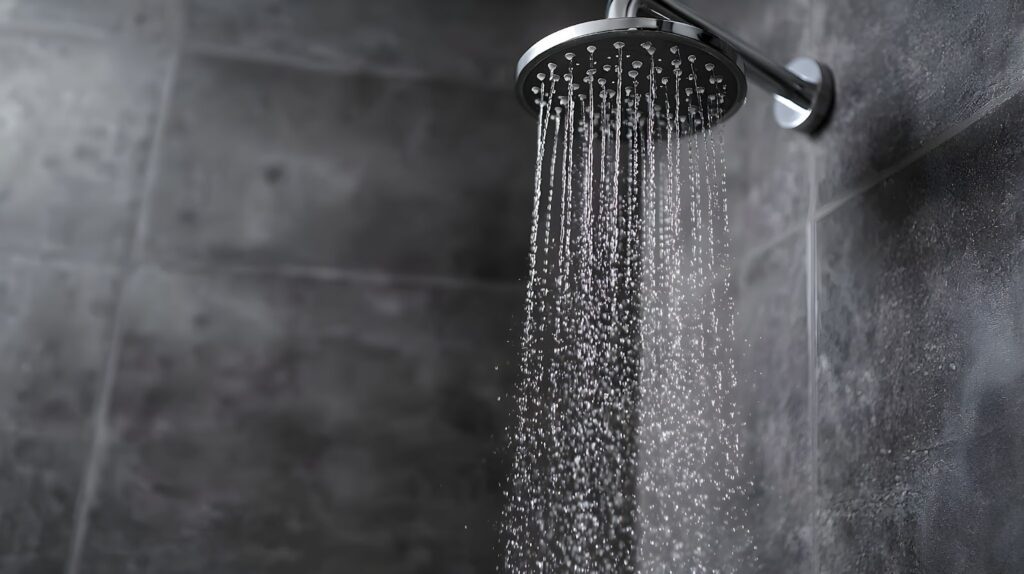
Call Salisbury Plumbing for trusted shower and plumbing repairs
A leaky shower head is a warning sign that your plumbing system needs attention. Small issues, when ignored, quickly escalate into costly repairs, wasted water, and added stress.
The good news is that you don’t have to handle it on your own. Salisbury Plumbing specializes in shower head repair, complete shower repair, and a full range of plumbing services to keep your home running smoothly.
Our licensed professionals have years of experience diagnosing and fixing leaks, clogs, and other plumbing problems with precision and care.
Don’t wait for a small drip to turn into a major problem. Protect your home, lower your utility bills, and enjoy the peace of mind that comes with reliable plumbing. Contact Salisbury Plumbing today for all your shower and plumbing needs.


